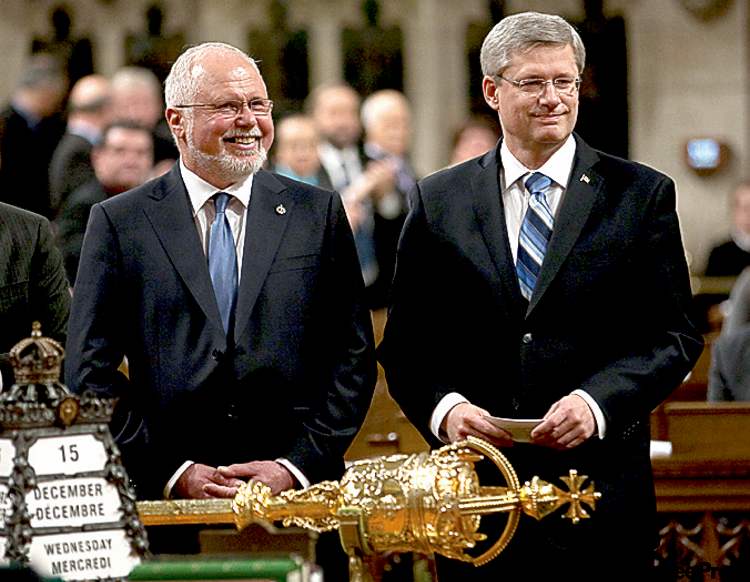Chiefs’ pay a distraction from the real aboriginal issues
Advertisement
Read this article for free:
or
Already have an account? Log in here »
To continue reading, please subscribe:
Monthly Digital Subscription
$0 for the first 4 weeks*
- Enjoy unlimited reading on winnipegfreepress.com
- Read the E-Edition, our digital replica newspaper
- Access News Break, our award-winning app
- Play interactive puzzles
*No charge for 4 weeks then price increases to the regular rate of $19.00 plus GST every four weeks. Offer available to new and qualified returning subscribers only. Cancel any time.
Monthly Digital Subscription
$4.75/week*
- Enjoy unlimited reading on winnipegfreepress.com
- Read the E-Edition, our digital replica newspaper
- Access News Break, our award-winning app
- Play interactive puzzles
*Billed as $19 plus GST every four weeks. Cancel any time.
To continue reading, please subscribe:
Add Free Press access to your Brandon Sun subscription for only an additional
$1 for the first 4 weeks*
*Your next subscription payment will increase by $1.00 and you will be charged $16.99 plus GST for four weeks. After four weeks, your payment will increase to $23.99 plus GST every four weeks.
Read unlimited articles for free today:
or
Already have an account? Log in here »
Hey there, time traveller!
This article was published 20/12/2010 (5434 days ago), so information in it may no longer be current.
OTTAWA — Chiefs and councillors of Canada’s First Nations were in the national capital region most of last week for a general meeting of the Assembly of National Chiefs.
There were any number of stomach-churning stories to focus on:
The fact that less than half of most kids on reserves will ever finish high school? The fact that three times as many aboriginal kids are in foster care now than were ever in residential schools? How about the rampant poverty, unemployment, chronic health problems, high rates of addiction and substance abuse, high rates of violence, and the hundreds of murdered and missing women? None made the cut.

When it came to any attention paid to the meeting by mainstream media and non-aboriginals, it was all about how much chiefs make.
A Canadian Taxpayers Federation campaign to expose corrupt chiefs living high on the hog overshadowed resolutions to address treaty land entitlement and the need to build indoor plumbing on northern Manitoba reserves.
Certainly there is corruption in some reserves.
But it exists in every society no matter the colour of skin or origin of its peoples.
Not every chief earns more than he or she should. The CTF acknowledged that, but somewhere it got lost in the furor to criticize.
The average pay for chiefs in Manitoba is just more than $42,000.
A number of people commented on stories on the Free Press suggesting the chiefs could use their own salaries to pay for installing running water in northern Manitoba.
Never mind that is like suggesting Premier Greg Selinger should forego his salary to build the new stadium.
The issues aboriginal Canadians face are real. Canadians open their hearts and wallets for people in far-away countries when there are earthquakes and tsunamis and mud slides.
But when people living an hour’s plane ride north are dying because they don’t have enough water to even wash their hands, we pass judgment on leaders for making a decent wage and tell them to move somewhere with plumbing.
Thankfully one aboriginal leader from British Columbia spoke out. He was angry at the CTF for the campaign which he said was misleading if not an outright lie. But he acknowledged that as long as there is any secrecy surrounding chief’s salaries, it will distract from the real issues.
Let’s hope chiefs live up to their pledge last week to make salaries and expenses for chiefs and councillors public.
Then, let’s hope Canadians can stop focusing on what chiefs are being paid and start focusing on what really matters.
— — —
Manitoba is back up to 14 MPs in the House of Commons for the first time in more than six months. Bob Sopuck took his seat in the House last Wednesday as the newly sworn-in Conservative MP for Dauphin-Swan River-Marquette.
Less than an hour after he was escorted into the House by Prime Minister Stephen Harper and Manitoba senior minister Vic Toews, Sopuck had to cast a vote on one of the most socially-contentious bills on the order paper.
It was introduced by one of his Manitoba caucus-mates to boot. Rod Bruinooge, the Conservative MP for Winnipeg South, wanted to make it a crime to coerce a woman to have an abortion.
Bruinooge introduced the bill after 24-year-old Winnipegger Roxanne Fernando was murdered, allegedly because she refused to have an abortion. Bruinooge said he hoped the bill would make women feeling pressure from anyone understand they have legal options to fight back.
But critics accused Bruinooge — who is the chair of the parliamentary pro-life caucus — of using the bill to try and get the abortion debate back into Parliament. Critics said coercion is already a crime and the bill was redundant.
Sopuck could have easily abstained from the vote, or voted with Bruinooge to not rock the boat so quickly in his political career.
He didn’t. He voted against the bill and was one of only two Manitoba Conservatives to do so. (The other was Steven Fletcher). The bill died.
Interestingly, Manitoba’s other new MP, Liberal Kevin Lamoureux, voted with Bruinooge in favour of the bill and against what most of his Liberal caucus did.
It is nice to see two political rookies voting the way they wanted to without feeling pressure to toe any suggested political line.
mia.rabson@freepress.mb.ca

